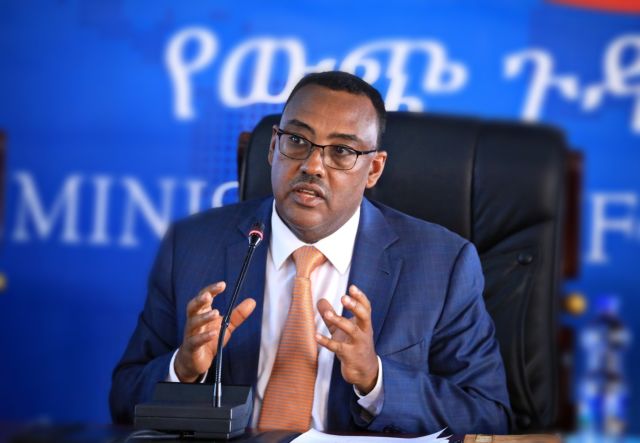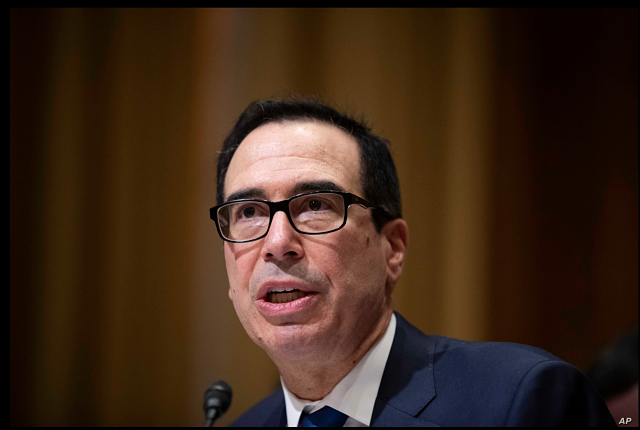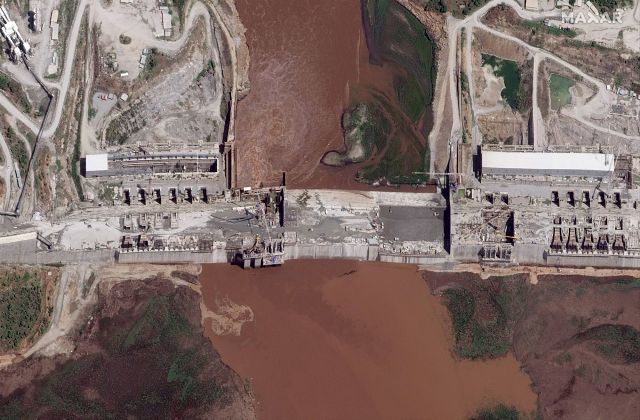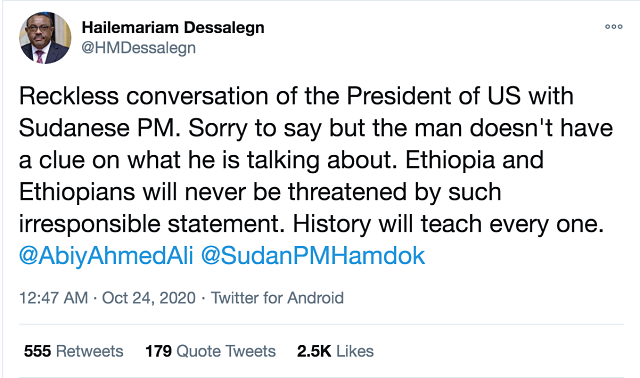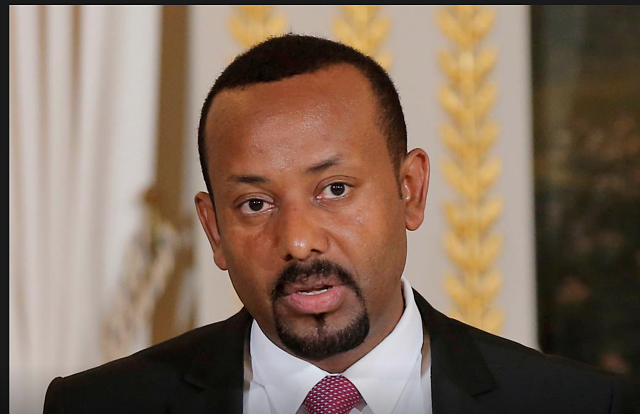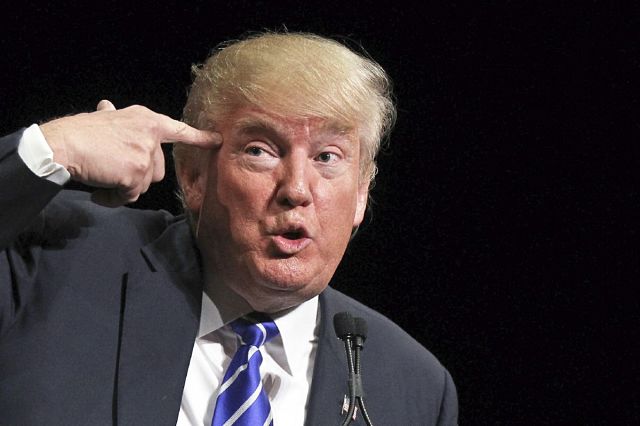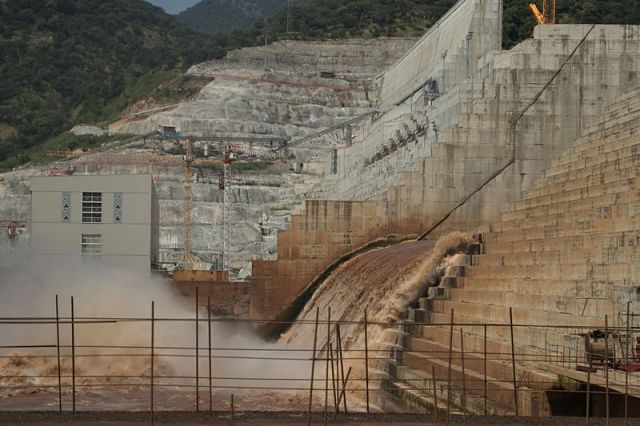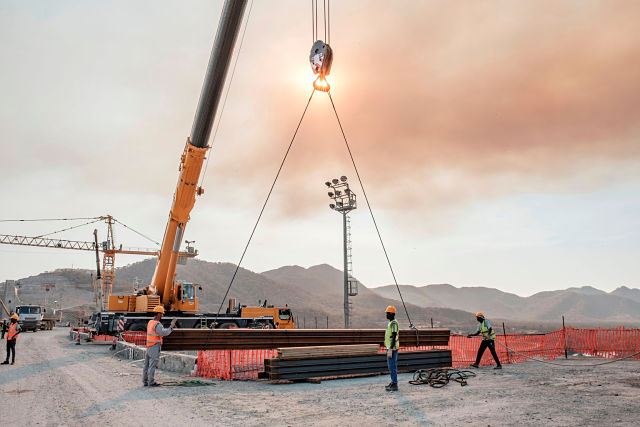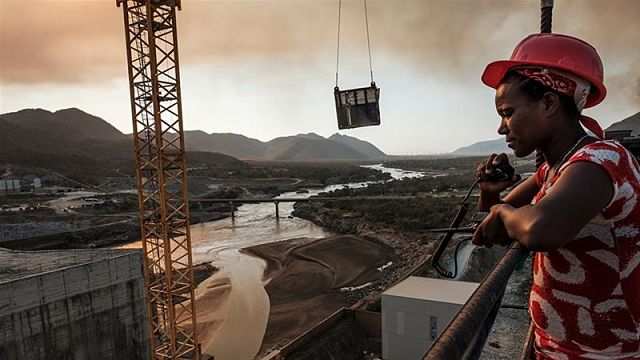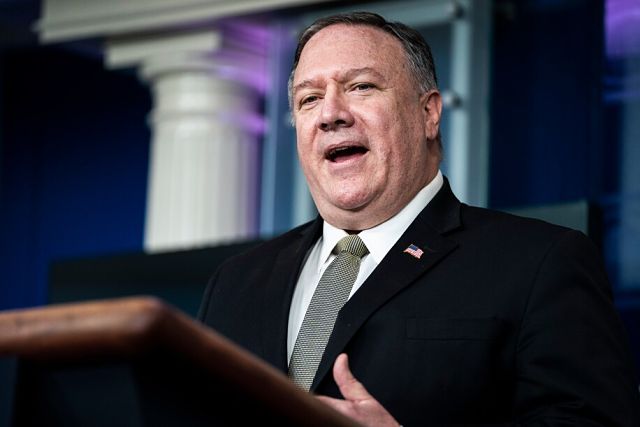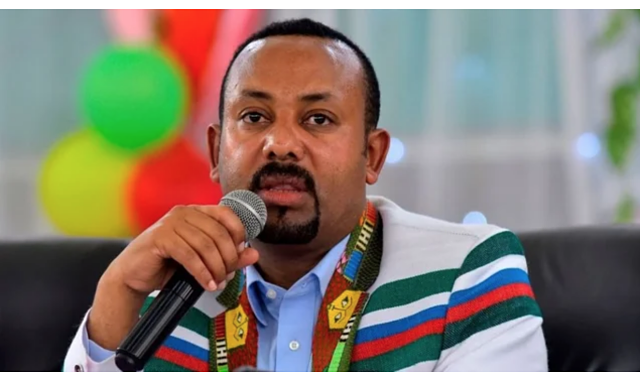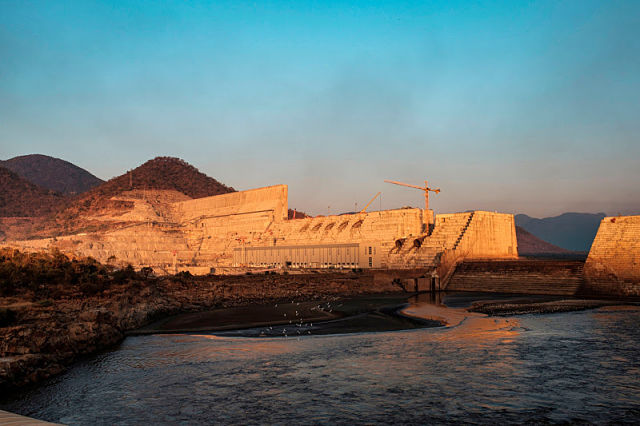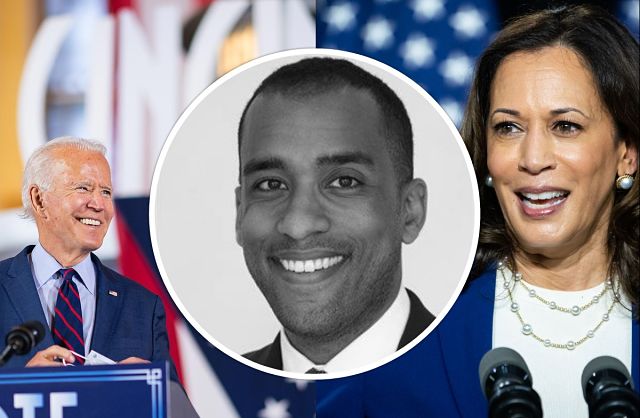 Yohannes Abraham has been named Chief of Staff and Executive Secretary of the White House National Security Council in the incoming administration of President-elect Joe Biden and Vice President-elect Kamala Harris. (Photos: Harvard and Transition website)
Yohannes Abraham has been named Chief of Staff and Executive Secretary of the White House National Security Council in the incoming administration of President-elect Joe Biden and Vice President-elect Kamala Harris. (Photos: Harvard and Transition website)
Tadias Magazine
By Tadias Staff
Updated: January 10th, 2021
New York (TADIAS) — The Transition Office of President-elect Joe Biden and Vice President-elect Kamala Harris continue to release a diverse list of appointments “that looks like America” to serve in their incoming administration. The latest hires include Ethiopian American Yohannes Abraham, who has been named Chief of Staff and Executive Secretary of the White House National Security Council.
As the press release highlighted:
Yohannes Abraham currently serves as the Executive Director of the Biden-Harris Transition, overseeing preparation for the implementation of Biden-Harris policy, personnel, and management priorities. He is also on the faculty of the Harvard Kennedy School of Government, where he lectures on management. During the Obama-Biden administration, Abraham served as Deputy Assistant to the President and Senior Advisor to the National Economic Council. He also worked as Chief of Staff of the White House Office of Public Engagement and Intergovernmental Affairs, where his team partnered with cities, states, and other key stakeholders to manage crises and support domestic and national security policy priorities. Abraham has also served on the leadership team of the Vanguard Group’s global investment unit and as a Senior Advisor at the Obama Foundation. A native of Springfield, Virginia, Abraham holds a BA from Yale College and an MBA from Harvard Business School, where he was a Baker Scholar.
In a statement President-elect Joe Biden said: “The National Security Council plays a critical role in keeping our nation safe and secure. These crisis-tested, deeply experienced public servants will work tirelessly to protect the American people and restore America’s leadership in the world. They will ensure that the needs of working Americans are front and center in our national security policymaking, and our country will be better for it.”
Vice President-elect Kamala Harris added: “This outstanding team of dedicated public servants will be ready to hit the ground running on day one to address the transnational challenges facing the American people — from climate to cyber. They reflect the very best of our nation and they have the knowledge and experience to help build our nation back better for all Americans.”
And incoming White House Chief of Staff Ron Klain said: “I am proud to announce that these incredibly accomplished individuals will be joining the National Security Council. They will bring a wide range of perspectives to tackling the defining challenges of our time, and I thank them for their willingness to serve their country.”
Below are the biographies of the NSC appointees named in alphabetical order as provided in the press release of the Biden-Harris Transition team:
Yohannes Abraham, Chief of Staff and Executive Secretary
Yohannes Abraham currently serves as the Executive Director of the Biden-Harris Transition, overseeing preparation for the implementation of Biden-Harris policy, personnel, and management priorities. He is also on the faculty of the Harvard Kennedy School of Government, where he lectures on management. During the Obama-Biden administration, Abraham served as Deputy Assistant to the President and Senior Advisor to the National Economic Council. He also worked as Chief of Staff of the White House Office of Public Engagement and Intergovernmental Affairs, where his team partnered with cities, states, and other key stakeholders to manage crises and support domestic and national security policy priorities. Abraham has also served on the leadership team of the Vanguard Group’s global investment unit and as a Senior Advisor at the Obama Foundation. A native of Springfield, Virginia, Abraham holds a BA from Yale College and an MBA from Harvard Business School, where he was a Baker Scholar.
Sasha Baker, Senior Director for Strategic Planning
Sasha Baker was most recently national security advisor to Senator Elizabeth Warren and served as a Deputy Policy Director for her presidential campaign. Previously, she served as Deputy Chief of Staff to Secretary of Defense Ashton Carter. Baker was a career budget analyst at the Office of Management and Budget, joining as a Presidential Management Fellow and serving in homeland and national security roles and as a Special Assistant to the OMB Director. She began her government career as a research assistant for the House Armed Services Committee. Originally from New Jersey, Baker is a graduate of Dartmouth College and received an MPP from the Harvard Kennedy School.
Ariana Berengaut, Senior Advisor to the National Security Advisor
Ariana Berengaut currently serves on the NSC Agency Review Team with the Biden-Harris Transition and held the COVID-19 policy portfolio as a volunteer on the Biden-Harris Campaign. She previously was a founding director at the Penn Biden Center for Diplomacy and Global Engagement. She served in the Obama Administration as speechwriter and counselor to then-Deputy Secretary of State Antony Blinken and, prior to that, as chief speechwriter and senior advisor to USAID Administrator Rajiv Shah. She started her career as a researcher at the U.S. Holocaust Memorial Museum and worked on the 2008 Obama campaign. Born in Washington, D.C., she attended Brandeis University and the University of Oxford, completing her graduate fieldwork in southeastern Uganda.
Tanya Bradsher, Senior Director for Partnerships and Global Engagement
Tanya Bradsher is the National Security Agency lead on the Biden-Harris Transition Team. Prior to her role on transition, she served as Chief of Staff for Congressman Don Beyer. Bradsher served as the Assistant Secretary for Public Affairs at the Department of Homeland Security during the Obama-Biden administration, led Veteran and Military Family outreach in the Office of Public Engagement, and served as the Assistant Press Secretary on the National Security Council. Bradsher is an Iraq war veteran who served 20 years in the United States Army and retired with the rank of Lieutenant Colonel. Bradsher was born in Virginia, is a proud member of Alpha Kappa Alpha Sorority Inc., and is a graduate of the University of North Carolina at Chapel Hill and The George Washington University. She lives in Virginia with her husband and three daughters.
Rebecca Brocato, Senior Director for Legislative Affairs
Rebecca Brocato was Director of Strategy and Government Affairs at National Security Action. During the Obama-Biden Administration, she served in the White House as Director for Legislative Affairs on the National Security Council and as House Legislative Affairs Liaison. She worked previously on Middle East policy at the State Department and as an aide to Sen. Ben Cardin (D-MD). Brocato began her career as a researcher focused on West and Central Africa. A Baltimore native, she is a graduate of Harvard and Oxford.
Elizabeth Cameron, Senior Director for Global Health Security and Biodefense
Elizabeth (Beth) Cameron is the Nuclear Threat Initiative’s Vice President for Global Biological Policy and Programs and a volunteer with the Biden-Harris transition team. She previously served on the White House National Security Council staff, where she stood up the Directorate for Global Health Security and Biodefense and helped launch the Global Health Security Agenda. She also served at the Department of Defense as an Office Director and Senior Advisor and at the Department of State where she focused on global threat reduction programs. She was a policy director with the American Cancer Society and an American Association for the Advancement of Science fellow in the health policy office of Senator Edward M. Kennedy. Cameron holds a Ph.D. in Biology from the Human Genetics and Molecular Biology Program at the Johns Hopkins University and is a graduate of the University of Virginia and member of the Council on Foreign Relations. Raised in Maryland, she lives in Washington, D.C. with her husband.
Tarun Chhabra, Senior Director for Technology and National Security
Tarun Chhabra is a Senior Fellow at the Center for Security and Emerging Technology at Georgetown University. He was previously a Fellow with the Project on International Order and Strategy at the Brookings Institution and a Visiting Fellow at the University of Pennsylvania’s Perry World House. During the Obama-Biden Administration, Chhabra served on the National Security Council staff as Director for Strategic Planning and Director for Human Rights and National Security Issues, and at the Pentagon as a speechwriter to the Secretary of Defense. Born in Tennessee and raised in Louisiana, Chhabra is a first-generation American and a graduate of Stanford University, Oxford University, and Harvard Law School.
Caitlin Durkovich, Senior Director for Resilience and Response
Caitlin Durkovich serves on the Department Homeland of Security (DHS) Agency Review Team for the Biden-Harris Transition. She is a Director at Toffler Associates and a Nonresident Senior Fellow at the Atlantic Council’s Scowcroft Center for Strategy and Security. Caitlin served as Assistant Secretary for Infrastructure Protection and as Chief of Staff for the National Protection and Programs Directorate (the predecessor to the Cybersecurity and Infrastructure Security Agency) at DHS during the Obama-Biden Administration. Caitlin was also a member of the Mission Assurance/Business Continuity Team at Booz Allen Hamilton. She helped launch the Internet Security Alliance in partnership with Carnegie Mellon University, and iDefense, an early cyber threat intelligence service. Born in New Mexico, Caitlin is a graduate of Duke University.
Jon Finer, Principal Deputy National Security Advisor
Jon Finer serves as Deputy Head of Foreign and National Security Policy on the Biden-Harris Transition team. He previously served in the Obama White House and State Department, including as Middle East Advisor and Foreign Policy Speechwriter to then-Vice President Biden and as Chief of Staff and Director of Policy Planning for Secretary of State John Kerry. Finer began his career as a journalist in Asia and covered several conflicts, including the Iraq War, as a foreign correspondent for The Washington Post. Since leaving government, he has held positions in academia, at think tanks, and in the private sector. He has an A.B. from Harvard; a M.Phil from Oxford, where he was a Rhodes Scholar; and a J.D. from Yale Law School. Finer was born and raised in Vermont, where his parents still live, and has three younger siblings.
Juan Gonzalez, Senior Director for Western Hemisphere
Juan Sebastian Gonzalez serves on the Biden-Harris Transition Appointments Team as a Deputy for National Security Agencies. He was previously a Senior Fellow at the Penn Biden Center for Diplomacy and Global Engagement. Gonzalez served in the Obama-Biden Administration as Deputy Assistant Secretary of State for Western Hemisphere Affairs, and in the White House as Special Advisor to Vice President Biden and National Security Council Director for Western Hemisphere Affairs. In 2017, Gonzalez was appointed by Senator Chuck Schumer to serve as a Commissioner on the bipartisan Western Hemisphere Drug Policy Commission, and represented the Biden campaign on the Biden-Sanders Unity Task Force on Immigration. Born in Colombia and raised in New York, Gonzalez is a graduate of Georgetown University’s Edmund A. Walsh School of Foreign Service and served as a Peace Corps Volunteer in Guatemala. He lives in Alexandria, Virginia with his wife and son.
Sumona Guha, Senior Director for South Asia
Sumona Guha was co-chair of the South Asia foreign policy working group on the Biden-Harris campaign, and serves on the transition’s State Department Agency Review Team. Guha is Senior Vice President at Albright Stonebridge Group. Previously, she served in the State Department as a Foreign Service Officer and later, on the Secretary of State’s policy planning staff where she focused on South Asia. During the Obama-Biden Administration, she was Special Advisor for national security affairs to Vice President Biden. Guha is a graduate of Johns Hopkins and Georgetown University. She lives in Bethesda, Maryland with her husband and three children.
Ryan Harper, Deputy Chief of Staff and Deputy Executive Secretary
Ryan Harper currently serves as the Director of Planning and Staff Secretary for the Biden-Harris Transition. He previously served in a number of foreign policy and national security positions during the Obama-Biden Administration at USAID and the Office of the General Counsel at the Department of Defense. He has also held positions at the White House Office of Presidential Personnel and the U.S. Department of Justice. Prior to the transition, Harper was an Associate Partner at McKinsey & Co., where he worked with public sector defense, development, and intelligence organizations. Originally from Massachusetts, he is a graduate of Stanford Law School, the Stanford Graduate School of Business, and the College of the Holy Cross. He lives in Washington, D.C., with his wife.
Peter Harrell, Senior Director for International Economics and Competitiveness
Peter Evans Harrell is a member of the Biden-Harris Transition working on the State Department Agency Review Team and on international economic and trade policy. Since 2015, he has served as an Adjunct Senior Fellow at the Center for a New American Security (CNAS) and as a lawyer in private practice. He has also taught international trade law at the University of Pennsylvania Law School. From 2009 to 2014, he served in the Obama-Biden Administration on the State Department Policy Planning Staff and as a Deputy Assistant Secretary in the Bureau of Economic and Business Affairs. Earlier in his career, Harrell worked as a journalist and as a staffer on the 2008 Obama-Biden campaign. Harrell was born in Baltimore and raised in Atlanta, where he currently resides with his wife, two children, and cat. He is a graduate of Princeton University and the Yale Law School.
Emily Horne, Senior Director for Press and NSC Spokesperson
Emily Horne serves as a volunteer on the Biden-Harris Transition Team leading communications for several national security Cabinet nominees. She joins the Biden-Harris Administration from the Brookings Institution, where she was Vice President of Communications. Horne was previously a civil servant at the State Department, where she began as an intern and served in a number of public affairs roles including Assistant Press Secretary and Director of Strategic Communications at the National Security Council, Communications Director for the Special Presidential Envoy to the Global Coalition to Counter ISIS, and Spokesperson for South and Central Asian Affairs. She also served as head of global policy communications at Twitter. Originally from Michigan, Horne holds a B.A. and M.A. from The George Washington University. She lives in Washington, D.C. with her husband and their two sons.
Shanthi Kalathil, Coordinator for Democracy and Human Rights
Shanthi Kalathil is currently senior director of the International Forum for Democratic Studies at the National Endowment for Democracy, where her work focuses on emerging challenges to democracy. Previously in her career, she served as a senior democracy fellow at the US Agency for International Development, an associate with the Carnegie Endowment for International Peace, a Hong Kong-based reporter for the Asian Wall Street Journal, and an advisor to international affairs organizations. Kalathil is the co-author of Open Networks, Closed Regimes: The Impact of the Internet on Authoritarian Rule (Carnegie Endowment for International Peace, 2003). Originally from California, Kalathil is a graduate of the University of California at Berkeley and the London School of Economics and Political Science.
Andrea Kendall-Taylor, Senior Director for Russia and Central Asia
Andrea Kendall-Taylor is the Russia policy lead for the Biden-Harris Transition. She previously served as a senior intelligence officer both as Deputy National Intelligence Officer for Russia and Eurasia at the National Intelligence Council in the Office of the Director of National Intelligence and a senior analyst at the Central Intelligence Agency. Kendall-Taylor was also Senior Fellow and Director of the Transatlantic Security Program at the Center for a New American Security. Originally from San Diego, Kendall-Taylor is a graduate of Princeton University and received her Ph.D. in Political Science from the University of California, Los Angeles. She lives in Bethesda, Maryland with her husband and three children.
Ella Lipin, Senior Advisor to the Principal Deputy National Security Advisor
Ella Lipin serves on the Biden-Harris Transition’s national security and foreign policy team. Prior to joining the Transition, she was national security and foreign policy advisor to Senator Catherine Cortez Masto. Lipin served as Egypt Country Director in the Office of the Under Secretary of Defense for Policy and in the speechwriting office of the Secretary of Defense. Raised in Oregon, Lipin is a graduate of Duke University and received an MPA from Princeton University.
Brett H. McGurk, Coordinator for the Middle East and North Africa
Brett H. McGurk is currently the Frank E. Payne and Arthur W. Payne Distinguished Lecturer at Stanford University’s Freeman Spogli Institute. He has held senior national security posts across the last three administrations, most recently as Special Presidential Envoy for the Global Coalition to Defeat ISIS (2015-2018). He previously served as Deputy Assistant Secretary for Near East Affairs at the State Department (2012-2015), Special Assistant to the President and Senior Director for Near East Affairs on the National Security Council (2007-2009), and Director for Iraq on the National Security Council (2005-2007). McGurk graduated from the University of Connecticut and Columbia University School of Law, after which he served as a law clerk to Chief Justice William H. Rehnquist on the U.S. Supreme Court.
Melanie Nakagawa, Senior Director for Climate and Energy
Melanie Nakagawa serves on the Biden-Harris Transition focused on climate change and energy. In the Obama-Biden Administration Nakagawa was appointed Deputy Assistant Secretary for Energy Transformation at the U.S. State Department and served as a strategic advisor on climate change to the U.S. Secretary of State John Kerry on the Policy Planning Staff. Most recently, she was Director of Climate Strategy at Princeville Capital, leading their climate and sustainability investment strategy to back technology-enabled companies delivering transformative solutions to climate change. Earlier in her career she was the Senior Energy and Environment Counsel for the Senate Foreign Relations Committee and an attorney with the Natural Resources Defense Council. She provides her expertise on the Board of the Advanced Energy Economy Institute, REVERB Advisory Board, and as a Loomis Council Member. Born in New Jersey, Nakagawa earned a J.D. and M.A. in International Affairs from American University’s Washington College of Law and School of International Service, and an A.B. from Brown University.
Carlyn Reichel, Senior Director for Speechwriting and Strategic Initiatives
Carlyn Reichel is a member of the National Security Council Agency Review Team on the Biden Transition. On the Biden-Harris Campaign, she served as both Director of Speechwriting and Foreign Policy Director. Prior to the campaign, Reichel was the founding Communications Director for the Penn Biden Center for Diplomacy and Global Engagement. Reichel joined the Department of State during the Obama-Biden Administration as a Presidential Management Fellow and went on to work as a speechwriter for foreign policy and national security officials at the State Department, the NSC, and the Office of the Vice President. Reichel grew up in Georgia, graduated from Stanford University, and earned her Master’s in Public Policy from the Harvard Kennedy School.
Dr. Amanda Sloat, Senior Director for Europe
Dr. Amanda Sloat is currently serving on the policy team for the Biden-Harris Transition Team. Prior to this role, she was a Robert Bosch Senior Fellow at the Brookings Institution. She was also a non-resident fellow in the Project on Europe and the Transatlantic Relationship at Harvard Kennedy School. During the Obama-Biden Administration, Sloat served as Deputy Assistant Secretary for Southern Europe and Eastern Mediterranean Affairs at the State Department. She also served as senior advisor to the White House’s Middle East coordinator and as senior advisor to the Assistant Secretary of State for European and Eurasian Affairs. She previously worked as senior professional staff with responsibility for Europe policy on the U.S. House of Representatives Foreign Affairs Committee. Before her government service, Sloat was a senior program officer with the National Democratic Institute and a postdoctoral fellow at Queen’s University Belfast. She has written widely on European politics, including a book (Scotland in Europe: A Study of Multi-Level Governance). Originally from Michigan, Sloat is a graduate of James Madison College at Michigan State University and holds a doctorate from the University of Edinburgh.
—
Related:
Biden Selects Yohannes Abraham as Member of Transition Team (UPDATE)
Spotlight: Meet The Trailblazing Ethiopian American Office Holders in U.S.
Ethiopia Congratulates President-elect Joe Biden & VP-elect Kamala Harris
Join the conversation on Twitter and Facebook.





